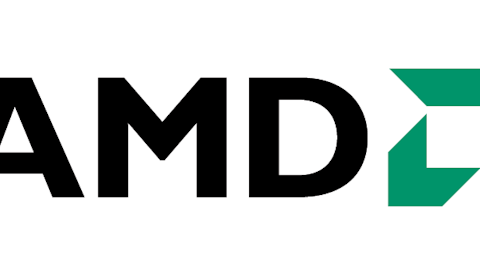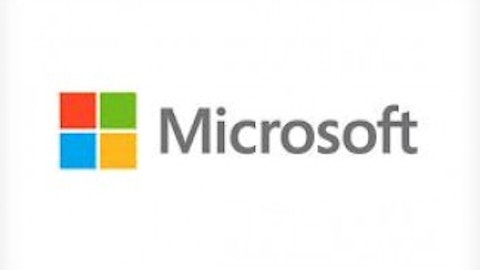Microsoft Corporation (NASDAQ:MSFT)‘s pop last week on the news of Steve Ballmer’s eventual resignation found it meeting Google Inc (NASDAQ:GOOG) on the valuation front again. Both tech bellwethers kicked off this new trading week with similar market caps of roughly $290 billion.
When Google Inc (NASDAQ:GOOG) overtook Microsoft Corporation (NASDAQ:MSFT) to command the greater market cap for the first time late last year, it seemed to be a case of two passing ships. Microsoft was the plodding Windows watcher, and Google was the faster-growing darling leading the way in the mobile computing revolution.

Microsoft Corporation (NASDAQ:MSFT) fades. Google Inc (NASDAQ:GOOG) climbs. Game over.
However, it’s been back and forth between the two in the race for market cap supremacy. What started off as passing ships is now a regatta. Which one is the smarter bet to win?
In terms of market multiples, Microsoft Corporation (NASDAQ:MSFT) is cheaper. It’s expected to generate more than $82 billion in revenue in its fiscal year ending next June. Google Inc (NASDAQ:GOOG) operates on a different fiscal year, but Wall Street’s eyeing less than $60 billion in revenue this calendar year, and nearly $70 billion next year. Mr. Softy is also more profitable than big G, fetching 12 times forward earnings. Google trades at nearly 17 times next year’s profit target.
The counter to that argument is that Google Inc (NASDAQ:GOOG) is worth the premium. It’s the one growing faster. Analysts see Google’s revenue growing 17% next year, and that’s a far cry from Microsoft Corporation (NASDAQ:MSFT)’s pace in the mid-single digits.
It’s not just about next year. Google is positioned well to capitalize on the future. Android has become the platform of choice for smartphones and tablets, the two computing mediums that are growing in popularity, as PC shipments fade. It’s true that Android is open source — and that Microsoft actually profits from Android as a result of patent agreements — but that comes at the expense of the larger sums of money that Microsoft used to make on desktop and laptop sales.
There’s a reason why Ballmer is stepping down at Microsoft, and it has largely to do with the fading relevance at Microsoft. Sure, it’s still growing. There’s strength in its server and tools software segment. Investors are hopeful that October’s Windows 8.1 update, and November’s Xbox One release, will breathe new life into tiring franchises.
However, the market has already decided that the future of connectivity — and perhaps even gaming — will be platform agnostic. That’s bad news for Microsoft or any company hoping to command a premium in operating systems. Going online will get cheaper, and that may be bad news for Microsoft, but it’s great news for Google.
As long as Google is the global leader in paid search and the top dog in online advertising — and Microsoft’s Bing is no threat on either front — it will be there to collect the spoils of the migration to cyberspace.
You’re welcome to disagree, but between the two $290-billion companies, it’s hard to bet against Google.
The article The $290-Billion Question: Google or Microsoft? originally appeared on Fool.com and is written by Rick Munarriz.
Longtime Fool contributor Rick Munarriz has no position in any stocks mentioned. The Motley Fool recommends Google. The Motley Fool owns shares of Google and Microsoft.
Copyright © 1995 – 2013 The Motley Fool, LLC. All rights reserved. The Motley Fool has a disclosure policy.





